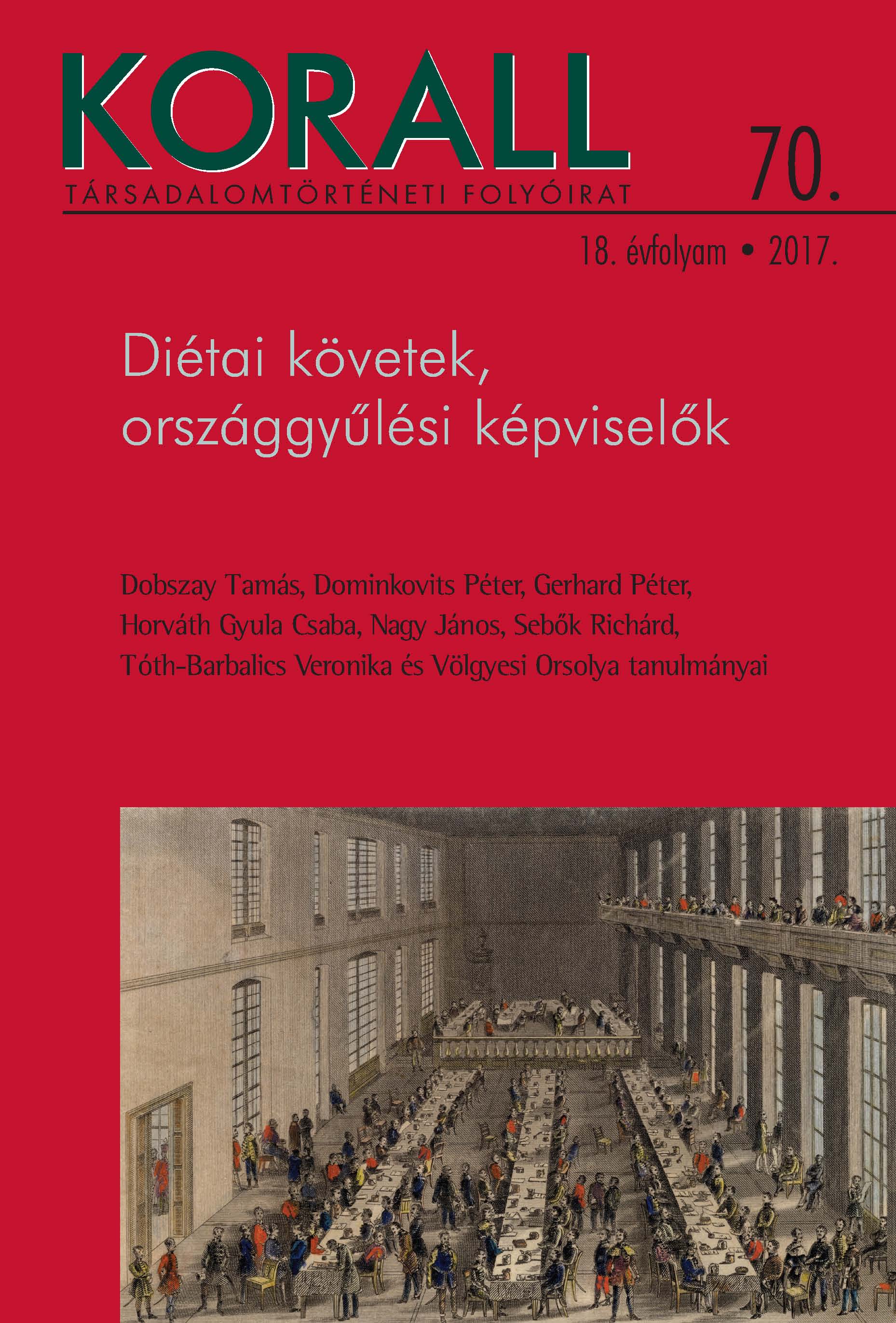A fővárosi képviselőjelöltek a dualizmus korai időszakában
Parliamentary Candidates of Budapest in the Early Dualist Era
Author(s): Péter GerhardSubject(s): Political history, Social history, 19th Century
Published by: KORALL Társadalomtörténeti Egyesület
Keywords: history;hungary;19th century
Summary/Abstract: The study analyses the social background of parliamentary candidates of Pest-Buda (and later, after 1873, Budapest) as well as their integration into the local and national political elite between the 1865 and the 1887 elections at the beginning of the Dualist Era in Hungary. The representatives and candidates under scrutiny are divided into two groups: members of the political elite on a national scale and public figures of local (district or municipal) significance. In this vein, the study examines whether candidates were able to achieve a political career on a national level regardless of their constituency affiliation, or did they remain anchored in the local community.Based on the candidate profiles, the municipal elections in the early Dualist Era can be divided into two distinct phases. In 1865 and 1869 candidates are more commonly nominated according to the expectations of mainstream politics, that is, according to their stance on the 1867 Compromise. As the establishment began to stabilise, however, other factors emerged. It became increasingly customary, for example, that certain candidates were nominated because of their ability to articulate the interests either of a district or of a professional or economic group. At the same time, the cultural and educational expectations from the candidate remained constant and so did that of their declared loyalty to the interests of the Hungarian nation – be that their participation in the 1848 revolution or identifying with the Hungarian national agenda of the age – and the ability to speak Hungarian. Besides these criteria it was an asset if the candidate came from county nobility (thus indirectly from national politics) or from among Buda/Pest burghers of local prominence: this was the prerequisite of successful election results in nearly all cases. The highest chance to win, however, was in the hands of those pro-government candidates who were members of both the national and the local Budapest political elite, but at the same time did not fail to maintain a strong negotiating power and advocacy on the constituency level.
Journal: Korall - Társadalomtörténeti folyóirat
- Issue Year: 2017
- Issue No: 70
- Page Range: 163-185
- Page Count: 23
- Language: Hungarian

